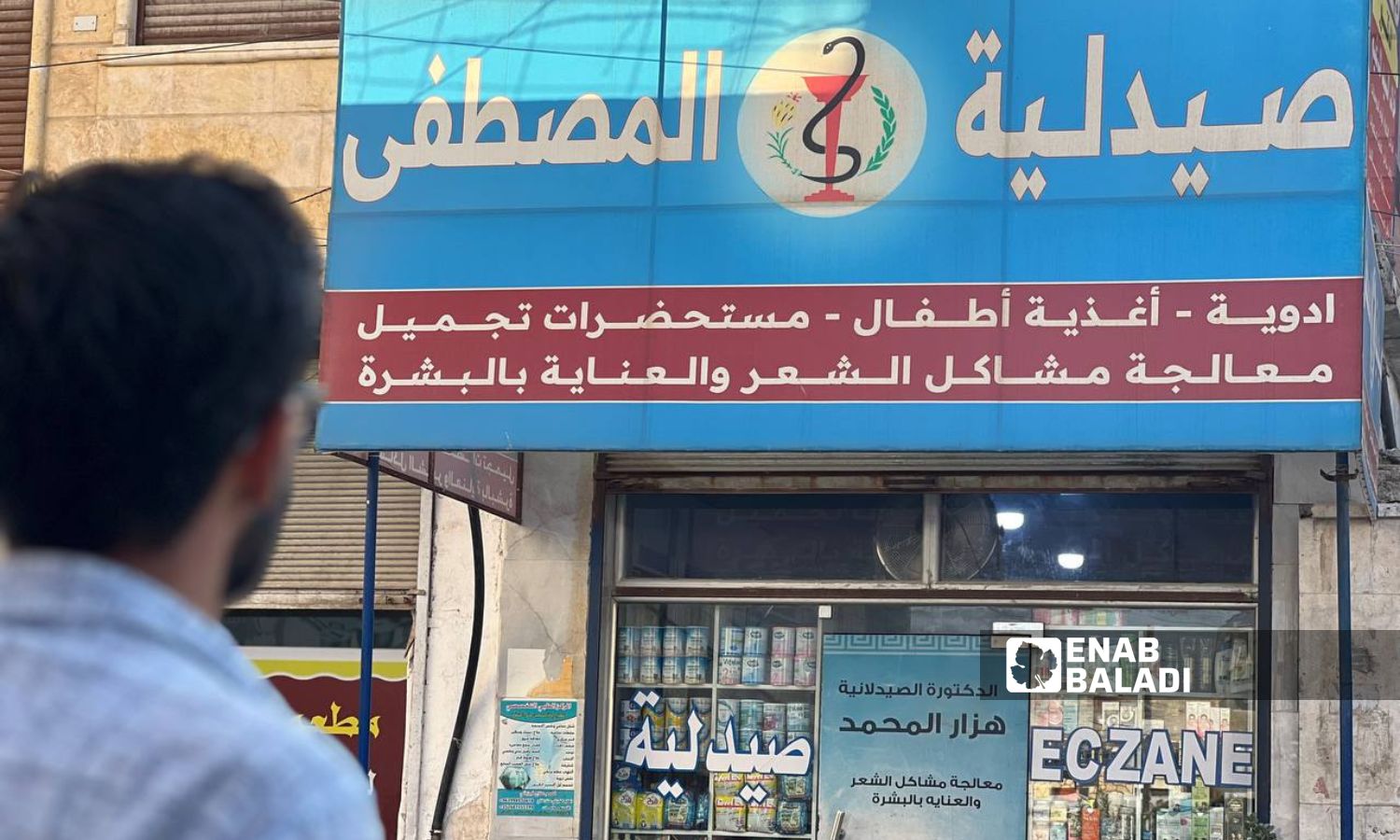



Enab Baladi – Dayan Junpaz
Residents in the city of Azaz, northern Aleppo, complain about the varying prices of medicines between pharmacies, with some differences reaching up to 100%, without a clear mechanism to understand the reasons for these discrepancies.
Some patients, especially those who need periodic medications for chronic diseases, face difficulties in obtaining their medicines at affordable prices, which increases their financial burdens.
Amid this disparity and the absence of effective oversight, many patients find themselves forced to move between pharmacies in search of the most suitable prices, amidst a state of price chaos that exacerbates their suffering, according to several residents interviewed by Enab Baladi.
Ahmed Darwish, a resident of Azaz, managed to save 75 Turkish liras by simply traveling 15 meters, stating that this disparity is annoying to him and he inquires about prices every time. He is compelled to regularly buy necessities for his two children, including milk, disinfectants, powder, and medicines.
He told Enab Baladi that he inquired about a sterilizer for children in one pharmacy, where it was priced at 150 Turkish liras, but found it cheaper in a nearby pharmacy, purchasing the same medicine for 75 Turkish liras.
The young man stressed the need for the concerned authorities to intervene to set fixed prices for all pharmacies, limit price discrepancies, and consider the conditions of poor people.
The disparity and high prices place financial burdens on residents, as daily workers’ wages in the area do not exceed 100 Turkish liras (equivalent to three US dollars), and unemployment rates are high, reaching 88.82%, indicating an unprecedented unemployment crisis, according to the Syria Response Coordination Group (SRCG) team working in the area.
Yusra Ramadan, who suffers from chronic diseases including heart conditions, diabetes, and hypertension, needs to purchase several essential medications monthly. She said she faces difficulties due to the varying prices between pharmacies, increasing her financial burden.
The woman residing in Azaz added that sometimes she finds herself unable to buy some medicines, which have high prices, due to her inability to bear the price differences, which worsens her health condition.
She told Enab Baladi that she buys Vastarel MR, which is used to treat angina, from a pharmacy in her neighborhood, where it costs 200 Turkish liras. During a visit to one of her relatives in another neighborhood, she bought the same medicine and discovered it cost only 145 Turkish liras.
After realizing the disparity, Ramadan started saving around 300 Turkish liras monthly and no longer relies on one pharmacy. She now buys her medications from several different pharmacies to ensure lower prices, adding that it is also burdensome.
A pharmacist in Azaz, who preferred to remain anonymous, told Enab Baladi that some pharmacies commit pricing violations by manipulating the accounting system.
He added that the problem lies in not placing a fixed price on medicine packages, allowing some pharmacies to set unchecked prices when customers enter, noting that these violations occur in a limited number of pharmacies.
The pharmacist mentioned that most pharmacies abide by the orders issued by the syndicate regarding pricing and that there are specific standards for determining pharmaceutical profit at 30% of the medicine package price.
He emphasized the need to intensify supervision of warehouses and pharmacies and issue warnings to those selling at higher prices, with the threat of “sealing” (closing) the warehouse or pharmacy in case of repeated violations.
Regarding the fluctuation of some medicine prices, the pharmacist explained that there are some types whose prices change significantly, especially those coming from regime-controlled areas, due to the high cost of the raw material from the source.
The disparity in medicine prices persists in Azaz, despite the presence of a health directorate affiliated with the local council and another syndicate under the Syrian Interim Government (SIG).
The health directorate holds meetings from time to time, some to discuss the condition of pharmacies in terms of adherence to drug pricing and the approved duty schedule and implementing it.
if you think the article contain wrong information or you have additional details Send Correction